
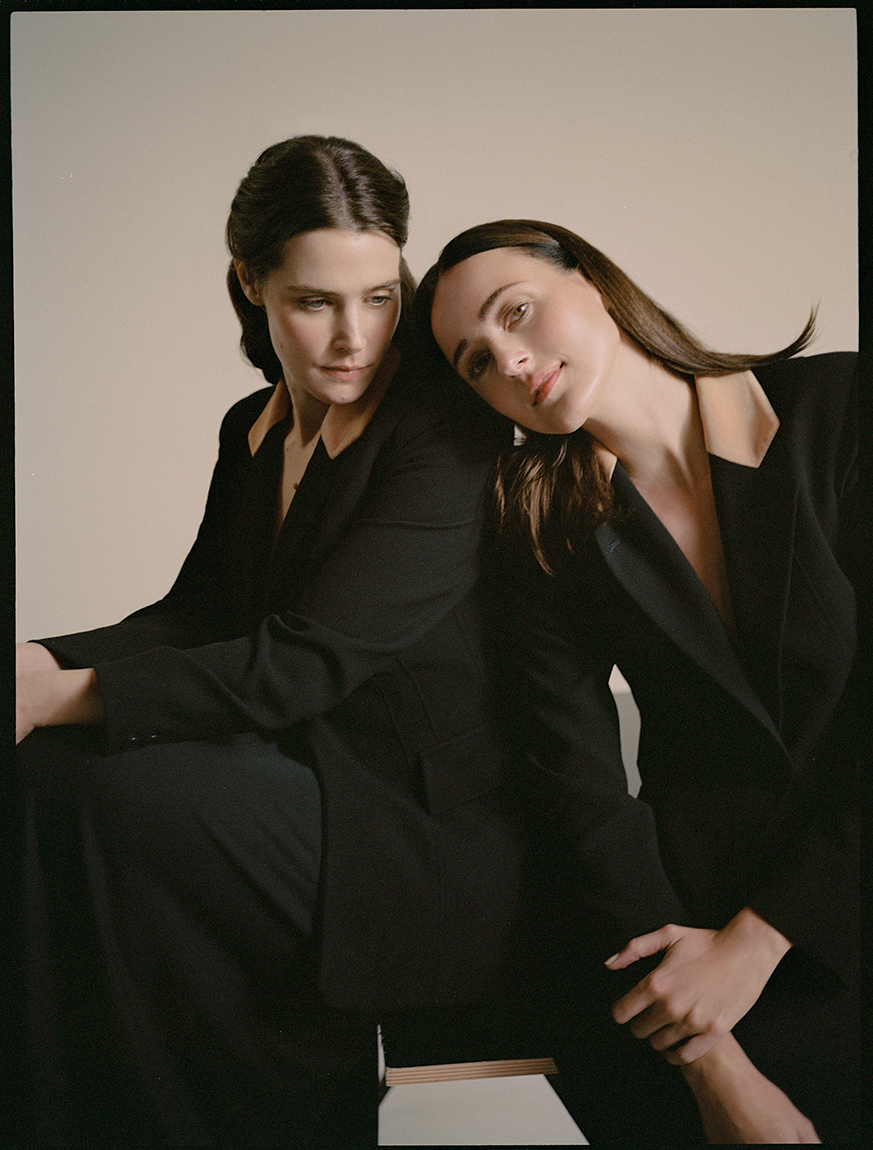
Renate Reinsve and Inga Ibsdotter Lilleaas both considered quitting acting before they met Joachim Trier. Ahead of the release of Sentimental Value—in which they play sisters Nora and Agnes—they discuss what it was about the Norwegian auteur that restored their faith in filmmaking.
There is a moment towards the end of Joachim Trier’s Sentimental Value (2025) when Agnes (Inga Ibsdotter Lilleaas) turns up at the apartment of her sister, Nora (Renate Reinsve), after she has been ignoring her calls for several days. She finds Nora in her kitchen, surrounded by dirty plates, watching television on her laptop, her face indexed with recent tears in the full glare of the Oslo sun. In the film’s emotional climax, when Nora finally reads the script her largely absent father (director Gustav Borg, played by Stellan Skarsgård) has written for her, inspired by his mother, who died by suicide years before—Agnes embraces her sister, who is lying on the bed. They hold each other for several tender beats. “I love you,” says Agnes. “You too. I mean, I love you too,” replies Nora.
The scene’s ending was largely improvised. “Joachim can really sense instinct. Inga had this instinct to go up on the bed but didn’t do it. And he kind of felt it and said, ‘Go’,” says Reinsve, the film’s lead actor. “You said what your character would say—she wouldn’t be able to say ‘I love you’ straight away,” replies Lilleaas. I am speaking to the pair while they are in London for the UK premiere of Sentimental Value roughly five months after my first viewing at its Cannes premiere. Drawn in by a more glittery offering from the Norwegian auteur—Elle Fanning stars as Rachel Kemp, a famous American actress who agrees to play the part offered to Nora—it was the domestic details of Sentimental Value that left me seduced. At the centre of this are the sisters. At the film’s opening we meet them via a narrator who, over a montage of their childhood home, recounts a school essay Nora writes from the perspective of their home, describing the slammed doors and eerie silence after their father leaves for good: “Nora reread the essay when looking for a text for her academy audition, but found it disappointingly detached. She chose Nina’s monologue from The Seagull instead.”
This is Reinsve’s third film with Trier to date. Now aged 37, in 2011 she had a one-line role in Oslo, 31st August (“Let’s go to the party!”) to be followed up 10 years later with her role in The Worst Person in the World, as Julie, a hapless woman in her late twenties navigating her way through the reality principle. While Nora possesses some of Julie’s DNA, in Sentimental Value there is a welcome difference in the presence of fully forged female—and familial—relationships. Played by Lilleaas in a breakout role for the 36-year-old, Agnes—an academic and one-time childhood star in her father’s films—provides a calm, emotional anchor to her sister, delivering silent looks loaded with concern that slowly sheds light on itself, while, in her personal research, bringing clarity to a larger family history.
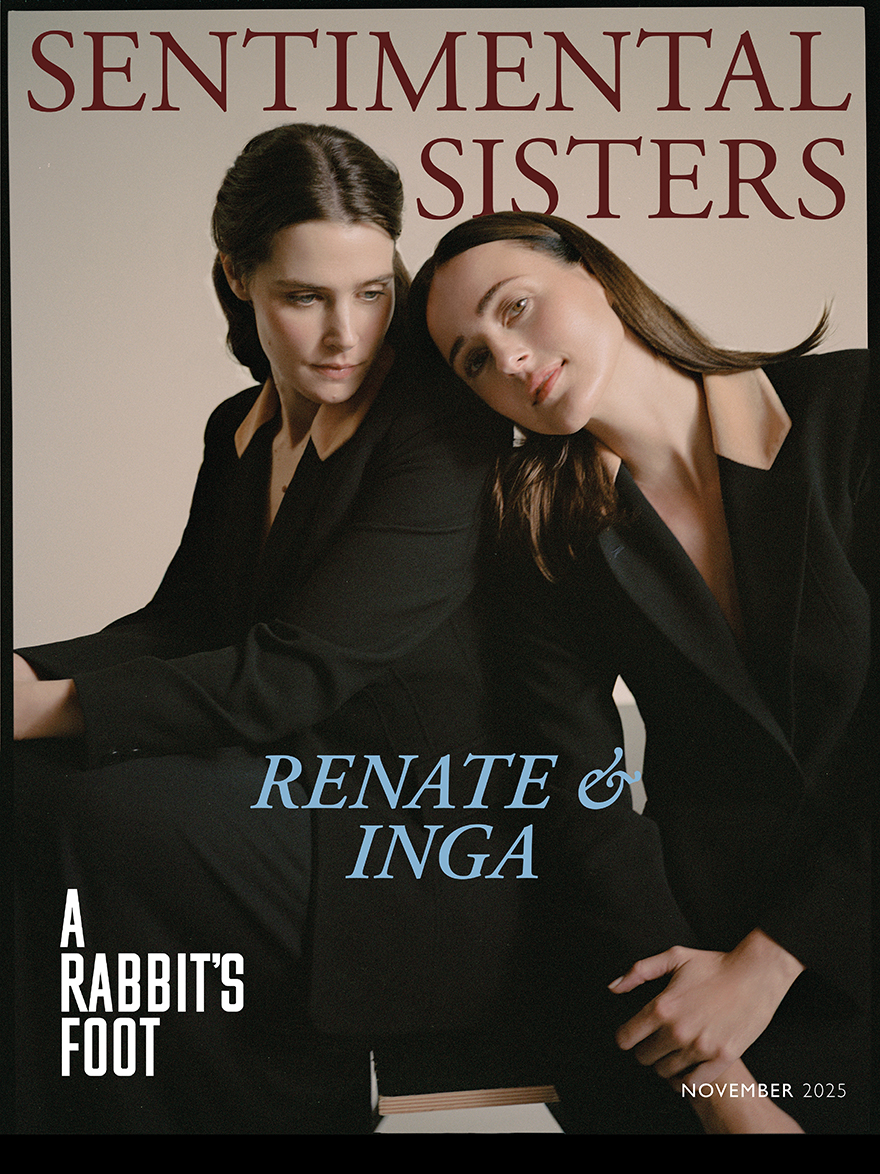
Kitty Grady: I saw Sentimental Value in Cannes. Could you take me back to that moment, when the film premiered, and that 19-minute standing ovation? What was going through your mind?
Renate Reinsve: I was really nervous and open to anything, because Joachim and I had done The Worst Person in the World and that was such a success. Statistically it shouldn’t be possible to have two movies that people really love, or have a strong relationship to. When I’m in a movie, I can’t tell if it’s really good or not. I was just noticing how the applause was quite long, but we didn’t know how long until we came out. Someone said it was 19 minutes and I thought they were joking. Then someone said it again the next day, and it was in writing, and then I was like, ‘Oh, it’s true’. At premieres people always say nice things—you don’t know how it landed.
Inga Ibsdotter Lilleaas: I remember going to the party, and people recognised me from the film. There was so much love and people seemed to like it. I was so nervous, because I’d heard in Cannes that people boo and stuff.
KG: The press screening was so electric. The Ikea stool gag got such a big laugh. Inga, this is your first film with Trier. What was your journey like to the script?
IIL: The casting director texted me and said she had a cool project she wanted me to do a screen test for. I didn’t know him before. In my second audition, I did a scene with the guy who plays my husband. It was one of the best auditions I’ve been to—it was so much fun and Joachim was on the floor and he was so engaged. I remember thinking when I was leaving that I’m probably not going to get it and that’s fine because this was such a rewarding audition experience that I’ll treasure for the rest of my life.
KG: I found it interesting in my research to read that both of you almost left acting before landing roles on films with Trier. What is it about his filmmaking that gave you faith?
IIL: I think it’s normal for actors to be constantly thinking, ‘I want to do something else’. But I was really thinking about doing something else, for real.
RR: In Norway, it’s really hard. Joachim’s really changed the bravery of investment and filmmakers wanting to make personal movies, and that the people sitting and delegating money see the value of these movies. So something is happening now. But I think we both had an ambition, we wanted something else for our careers, separately, that didn’t feel the same as Norwegian movies. At that time, when I wanted to quit, Joachim was the only director I wanted to work with. Now more interesting directors are actually getting money to make their movies. In the world it’s so rare that you have someone getting to make a personal story.
IIL: And to work so intimately. It’s really close, you can be really truthful. There’s no one trying to force you in a direction. It’s really what I thought acting was going to be when I was younger, and that’s not really been the way—sometimes, but it’s rare, this way of working.
RR: When you have an ambition to become an actress for the art of it, and then you have so many productions—it’s not that I look down on that kind of work, but it wasn’t for me to make something that didn’t go very deep into something existential. To be sincere.
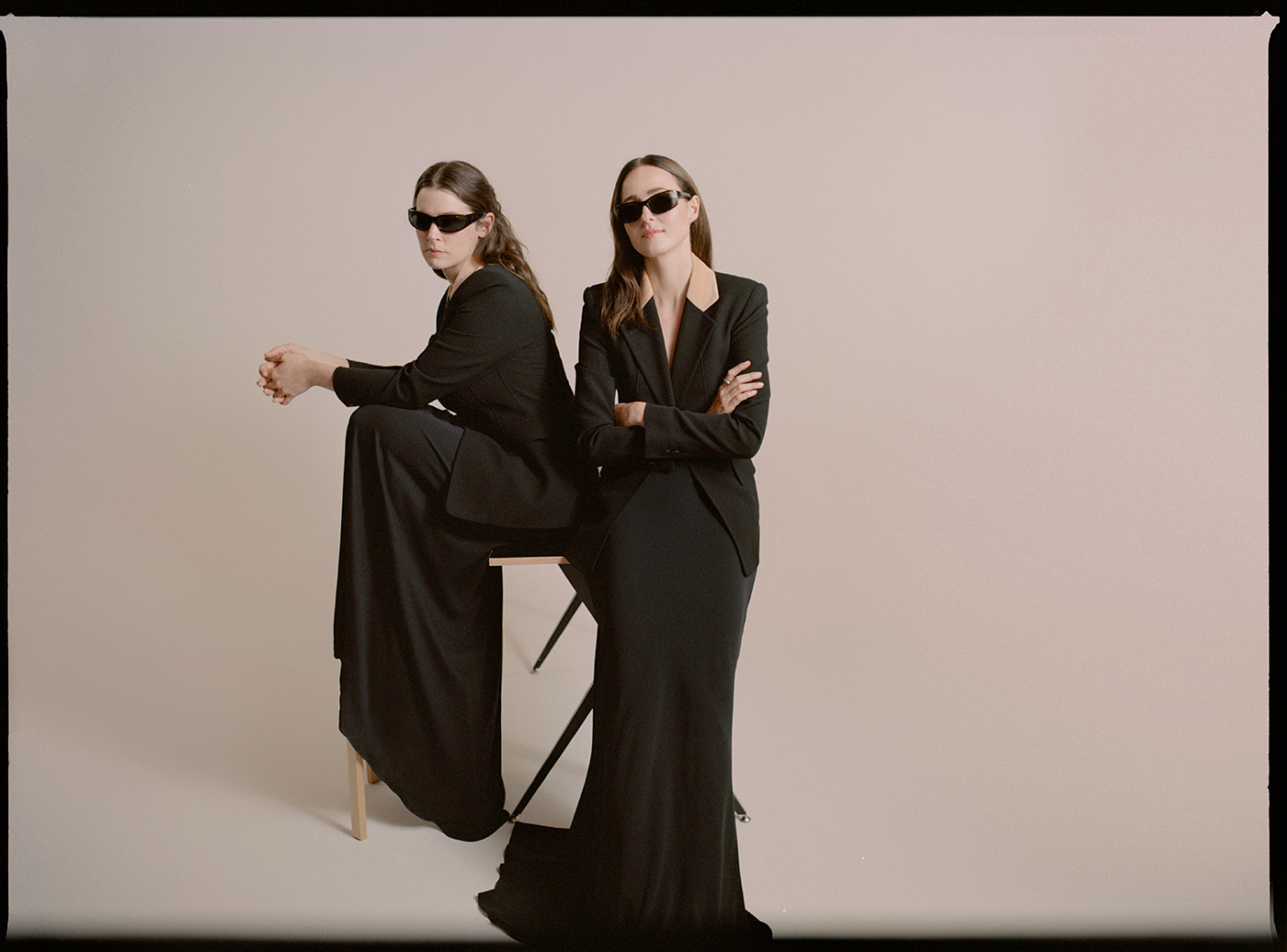
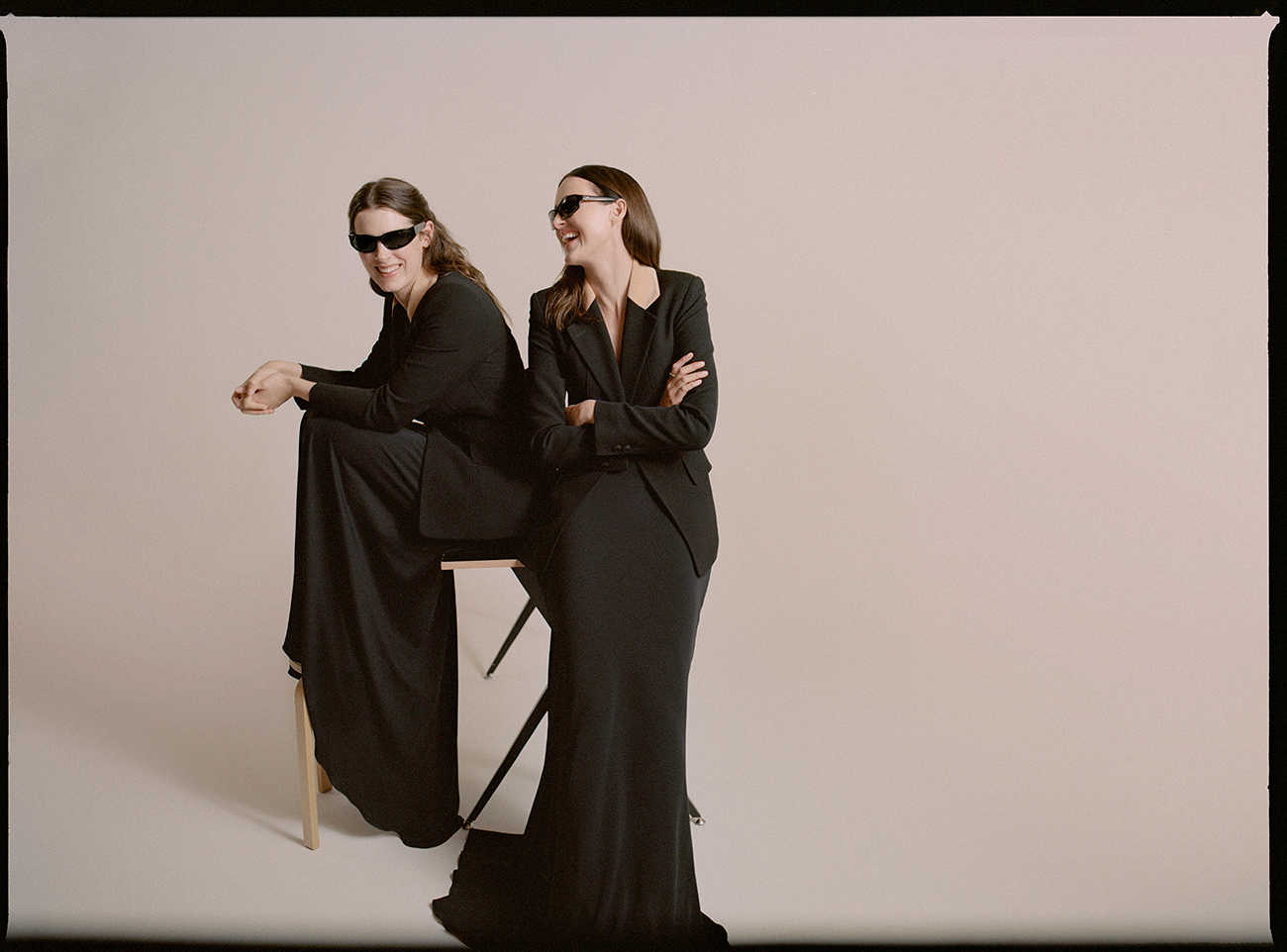

KG: Renate, I found it interesting to trace the development from The Worst Person in the World to Sentimental Value. I loved Worst Person, but I did leave it wishing Julie had more properly developed female relationships around her. Nora is given this, mainly through her sister. How was that development for you as an actor?
RR: It’s a good perspective. I didn’t think of it like that, but you’re right—it’s a totally different dynamic for a character to have these intimate scenes with other female characters. I love that the sister relationship is so big in the movie, and that it’s so complex, and that it’s not like they have an ongoing conflict. It’s more like they love each other so much that they see the lacks in their lives through each other, because they live such different lives and their roles have changed so much. Nora was protecting Agnes when she was young. She doesn’t know how to live with all that emotional weight as an adult and starts her life outside of the house, and Agnes becomes her protector after that.
IIL: For Agnes, it was really working with the fear of losing someone. When you almost lost someone and you’re constantly scared. To what degree do you fear losing that person? It must be something that’s in the back of your mind. I think she knows her sister so well and she can read her. But it was interesting to have that tension, that the ground you walk on is never completely secure.
RR: And speaking of my character in The Worst Person in the World, Julie was much more naive, and free, and open. She hadn’t made her choices yet, but Nora is kind of settled in her life and she carries so much emotional weight. She’s really trying to navigate something without being able to understand it or process it. It was fun to play with how much she knew herself and creating that dynamic within her.
KG: So much of the acting is done through silent moments and shared gazes. And on a second watch I understood the subtext of those moments far more. When you were developing the characters, did you have a shared narrative to create that sisterly intimacy?
IIL: No, we didn’t really plan anything. We went through things in rehearsals and built on that. We had conversations with Joachim separately. I think that we like to work similarly. Renate is the kind of actress that will give you her whole life through her eyes. [Looks at Renate]
RR: I’m smiling because it’s a nice compliment!
IIL: So you can feed off of that and you find something that I can recognise in my body. Not all actors are willing to give that.
RR: You were the same. If you send someone something without being really clear, but it’s more complex, it takes a very good actor to pick that up. It’s kind of like playing together. And we did that very intuitively. It was just our chemistry and the way we are as actors, both of us. We didn’t need that backstory, because it very much occurred in the moments.
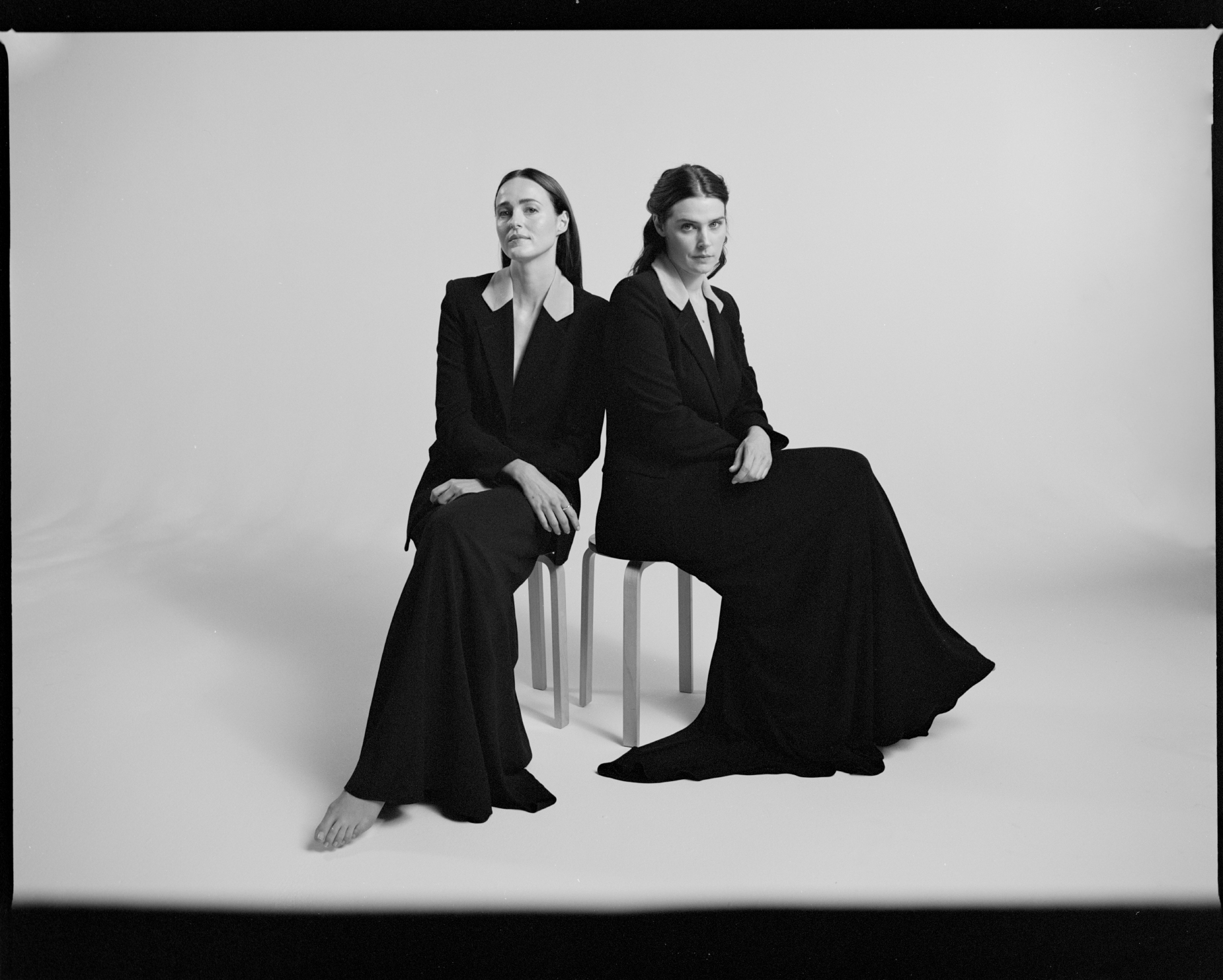
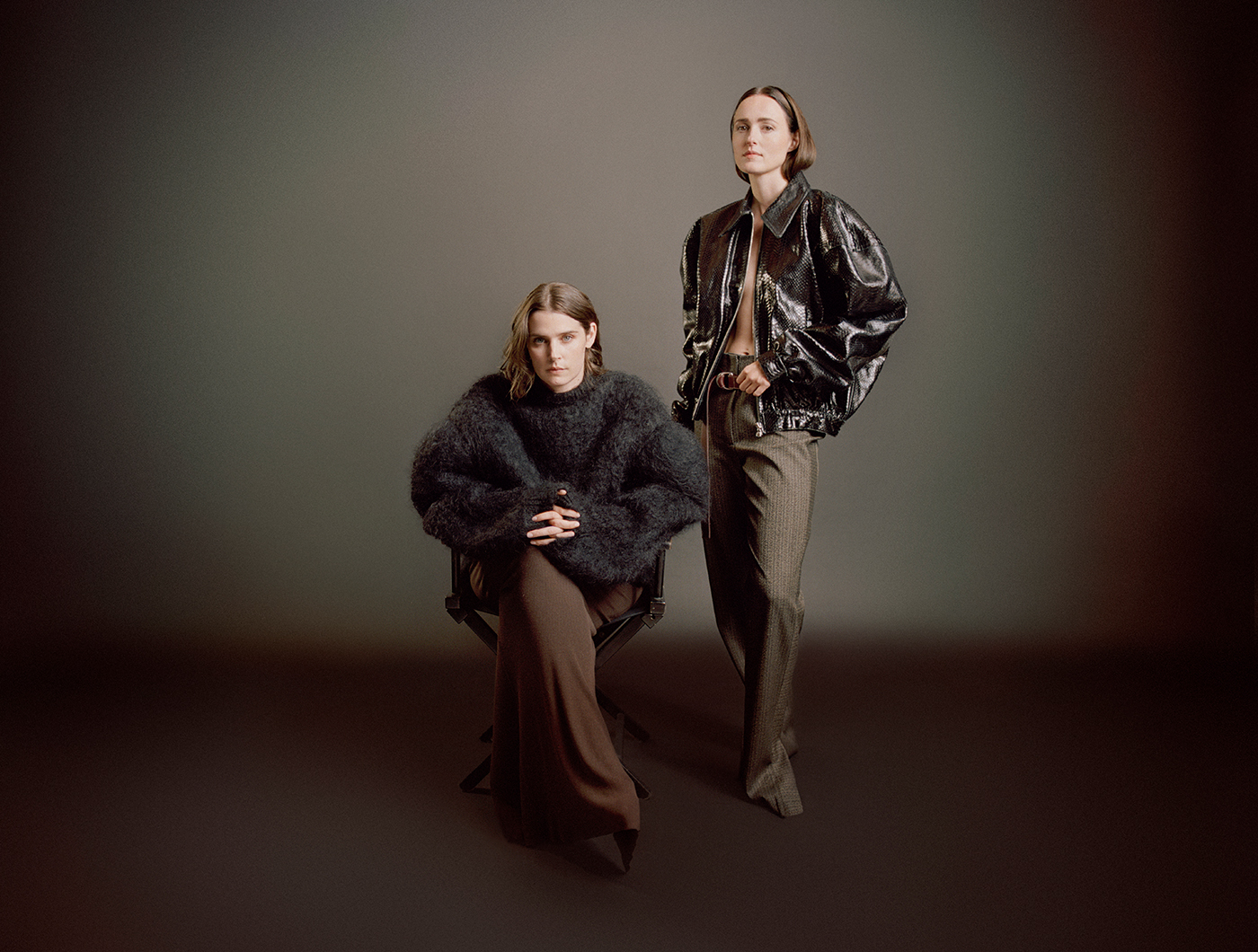
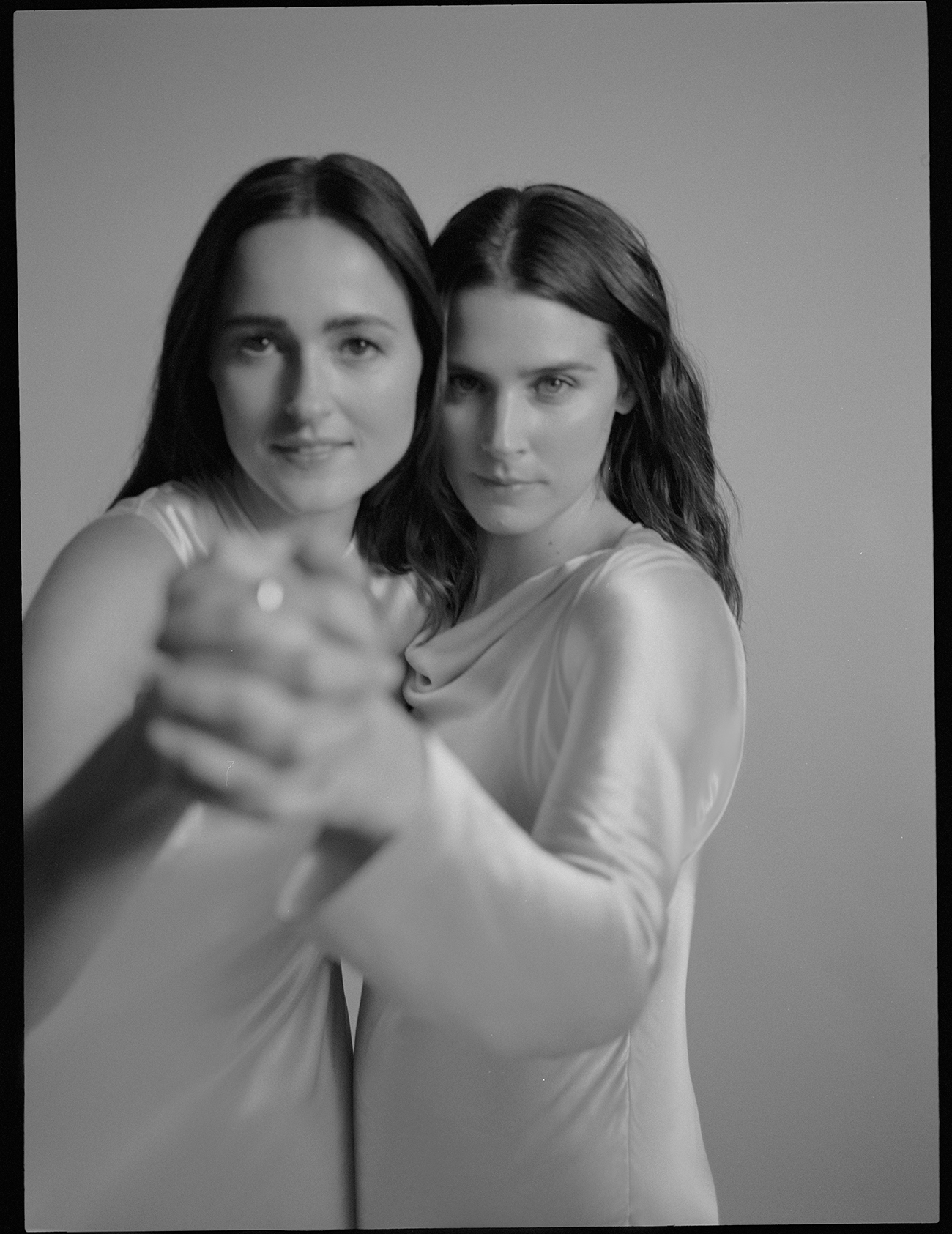
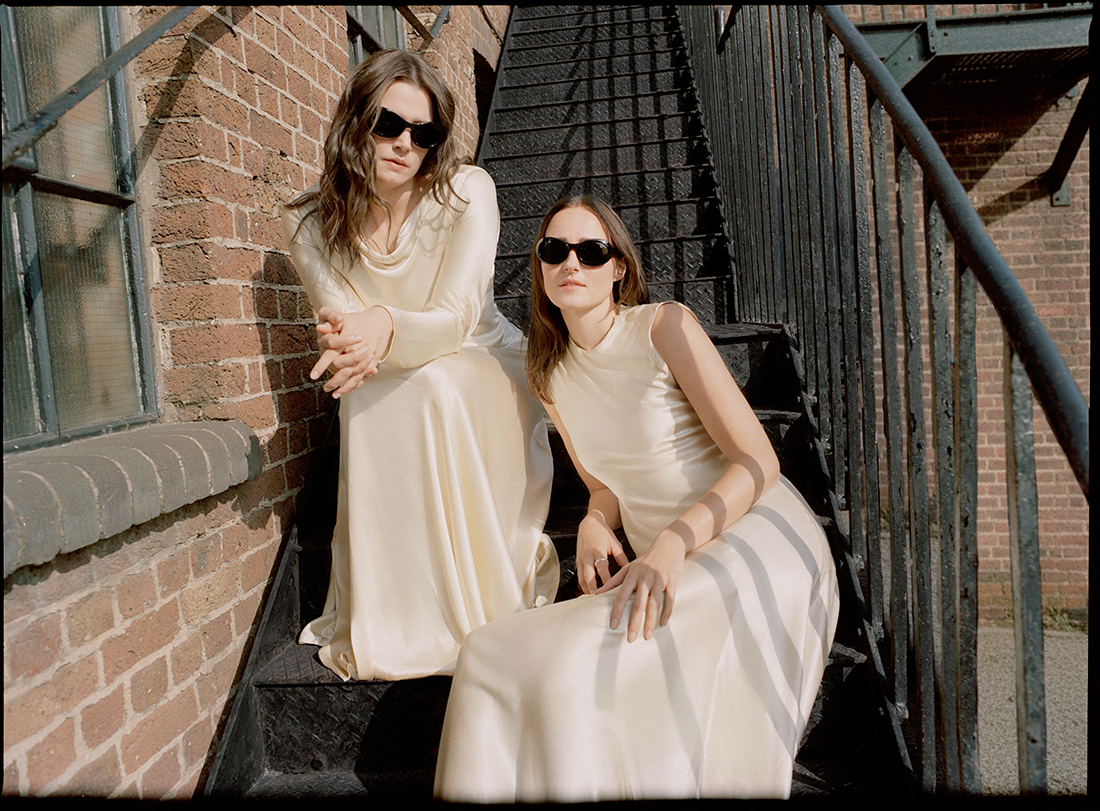
“Renate is the kind of actress that will give you her whole life through her eyes.”
Inga Ibsdotter Lilleaas
KG: I’d love to ask about the opening scene, Renate, when Nora is having a panic attack getting ready to go on stage. It’s such an intense, insane opening to the film, and such a clever way of explaining her character, with this thing that she loves, but she’s also freaking out about.
RR: Like I said, she has so much inside her that she hasn’t processed. And to be an actress, you have to open up to everything in yourself if you want it to be good. You have to be close to everything, the whole spectrum of yourself. And that panic is her trying to get away from it because it’s so uncomfortable. But it’s also what gives her power. I don’t think she understands that completely. But it was also such a comic scene. I was so looking forward to doing it. I’ve actually done so much comedy in the theatre, but I’ve played so many dramatic roles after The Worst Person in the World. But I really love playing panic and comedy.
KG: There’s a line where Nora explains how acting provides a sense of security to connect to her own feelings. Is that a sentiment that resonates with you both?
RR: The way Nora is in the script as an actor is very different from me as an actor. I actually feel that I open up to lose control so that something subconscious comes out, and then I learn something about myself seeing that. So from The Worst Person in the World and all the roles that I’ve done since, and, like, opening up to all those different themes and traits of a character, I feel I’ve learned so much about myself—stuff I really like and stuff I don’t like.
IIL: I feel like when you’re acting, you get to feel the feelings. When you’re young, you’re told not to express your feelings and that’s such a freeing thing when acting. I like feeling the worst feelings I can feel—like anger and grief. It’s such a relief in the body. The scene where I’m at the table and [Nora is] reading the script, I remember doing that, and I was just reacting—I had no control over myself. It was just something with the way you read it and did it that just really affected me. I was just a completely truthful reaction to someone doing something.
KG: I read Trier describing this as a very improvised scene.
RR: He’s also so close to the camera. Correct me if I’m wrong, but he can really sense instinct. He’s so tuned in. I think Joachim can really sense instinct. Inga had this instinct to go up on the bed but didn’t do it. And he kind of felt it and said, ‘Go. And then you went up and then you were like, what I’m feeling is right. And then you said, ‘I love you’. And I was in character and I said, ‘You too. No, wait, I love you too.’ Because she can’t express it fully.
IIL: It’s so cool because you’re so in it. You said what your character would say. She wouldn’t be able to say, ‘I love you’ straight away.
RR: That is also Joachim’s way of working, because it’s very honest and it’s just about the moments occurring. We are so conditioned through a really slow rehearsal period, and things work subconsciously and we get closer and closer into the character, more and more empathy for their situation. Then it’s so quiet and sensitive on set, and everyone’s so tuned in. It’s like he’s so good at making everyone feel important because he actually believes it. Everyone is leaning in emotionally. The DP, of course, Kasper Tuxen, is the best DP in the world, but also the focus puller. It’s like with emotions in real life, you need to feel really safe to lose control and he really builds that. There are no sets like his sets.
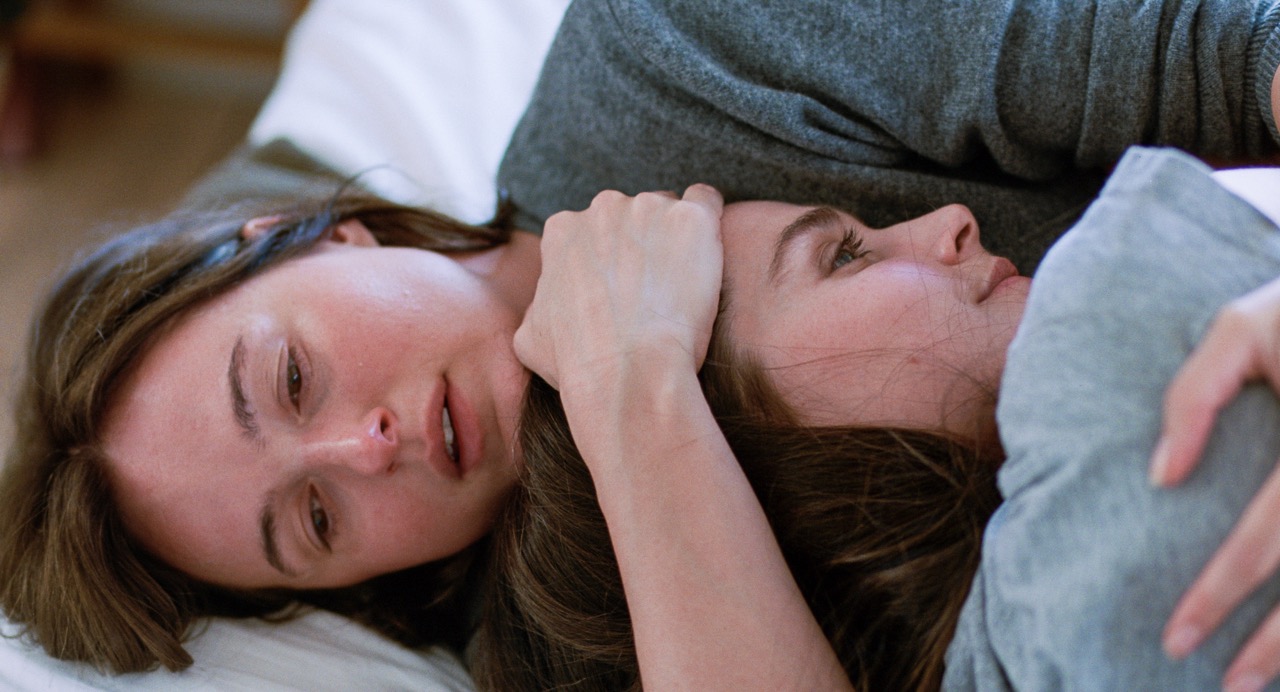
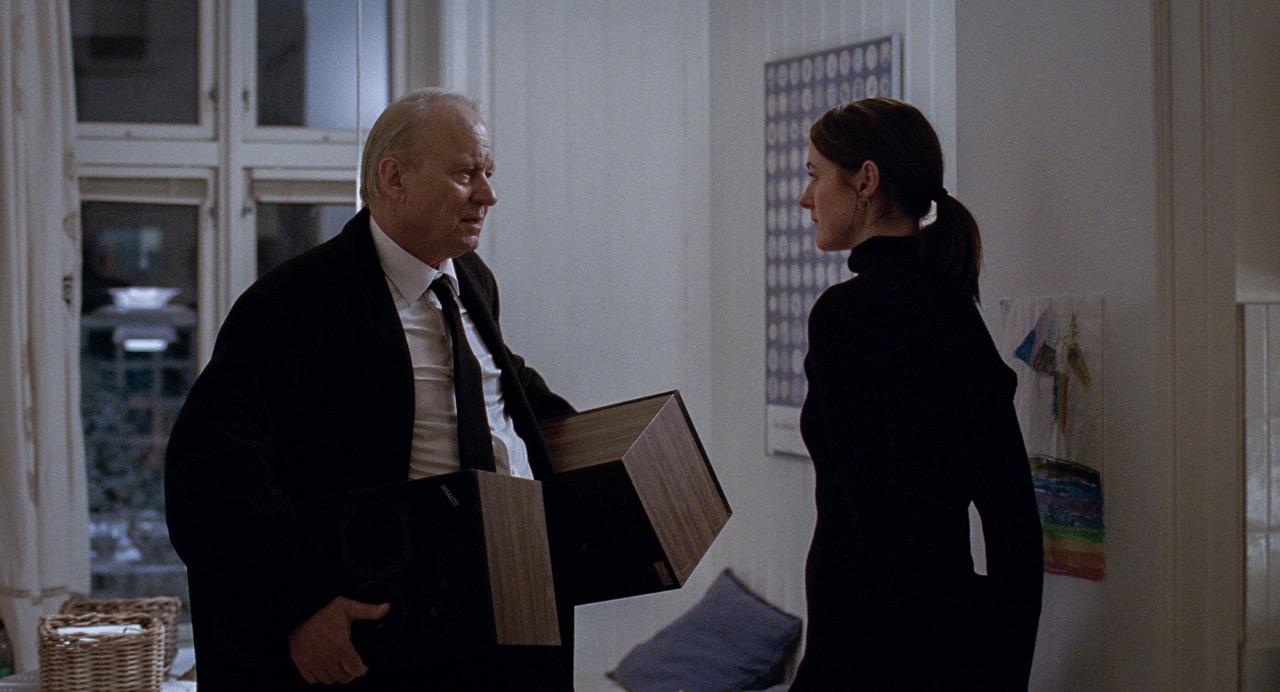
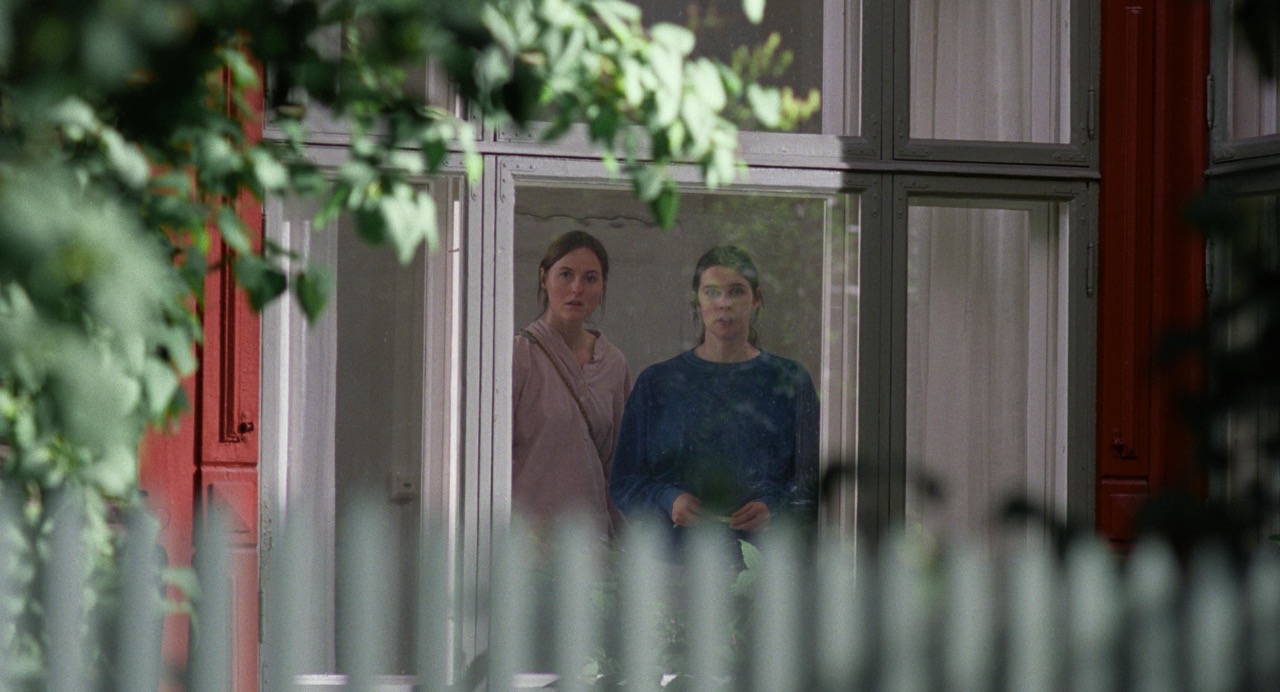
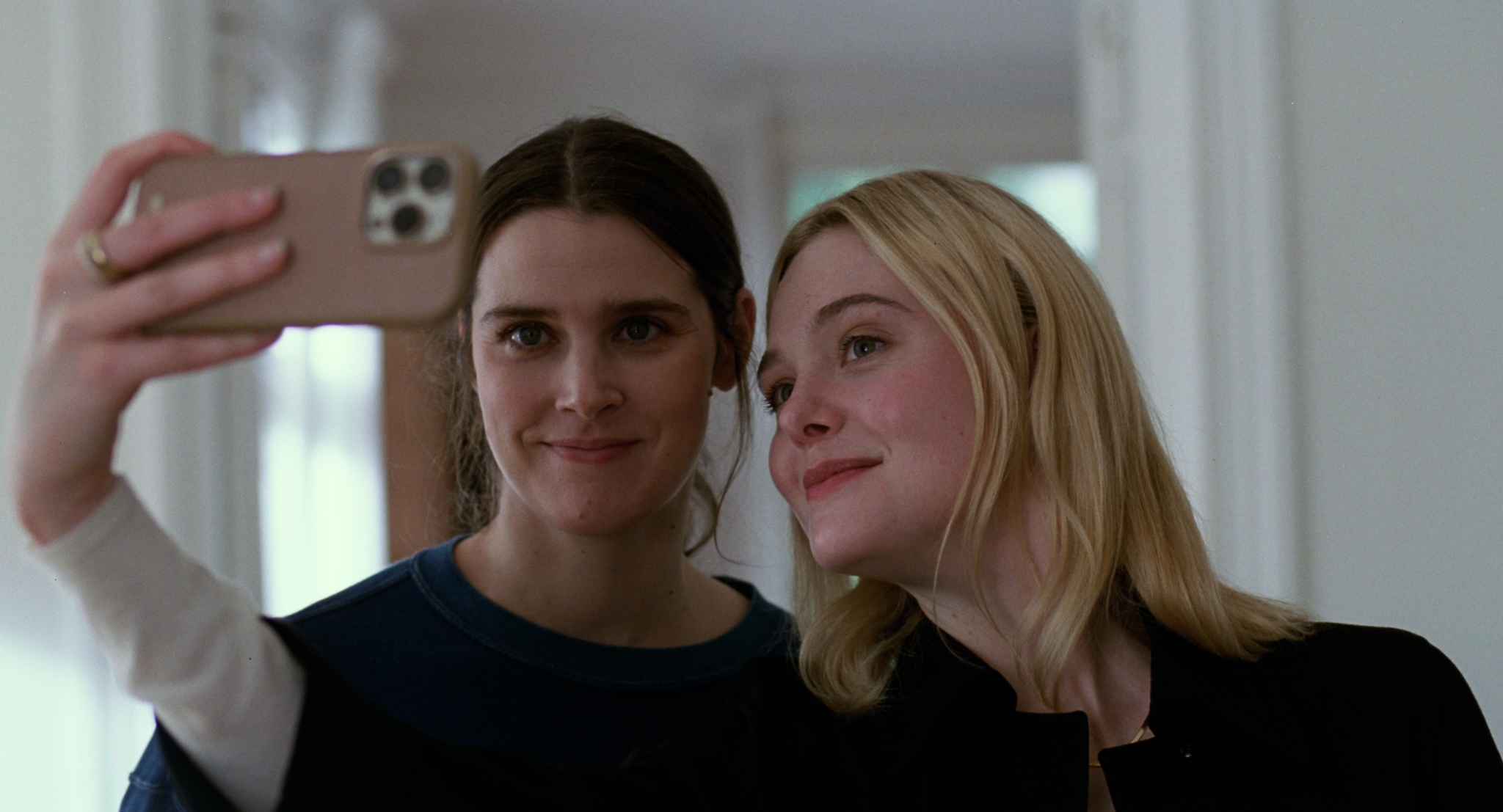
“I think I would have gone insane if I got this kind of attention when I was like 18, 19. It happened for a reason when I was after 30.”
“I think I would have gone insane if I got this kind of attention when I was like 18, 19. It happened for a reason when I was after 30.”
Renate Reinsve
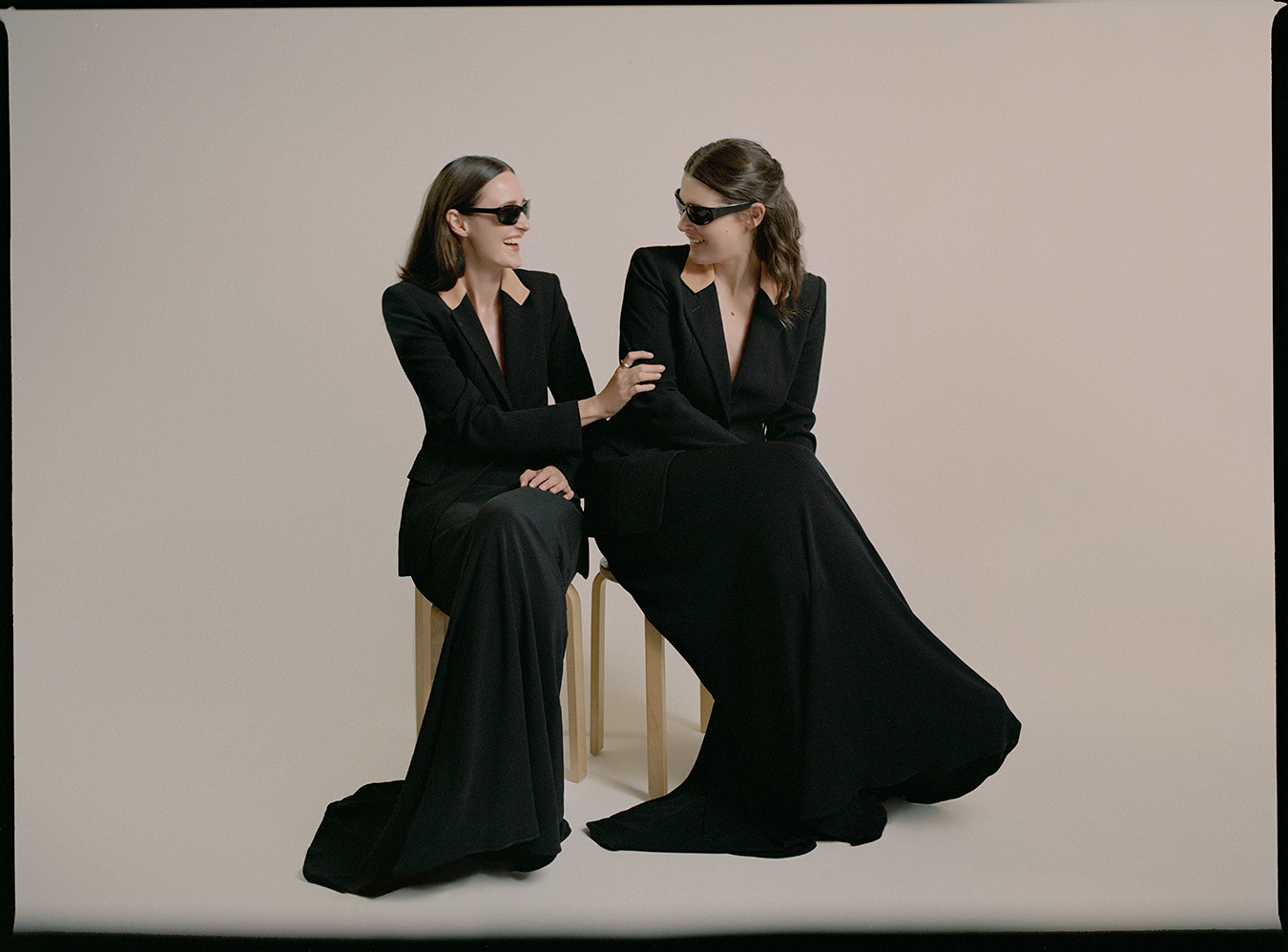
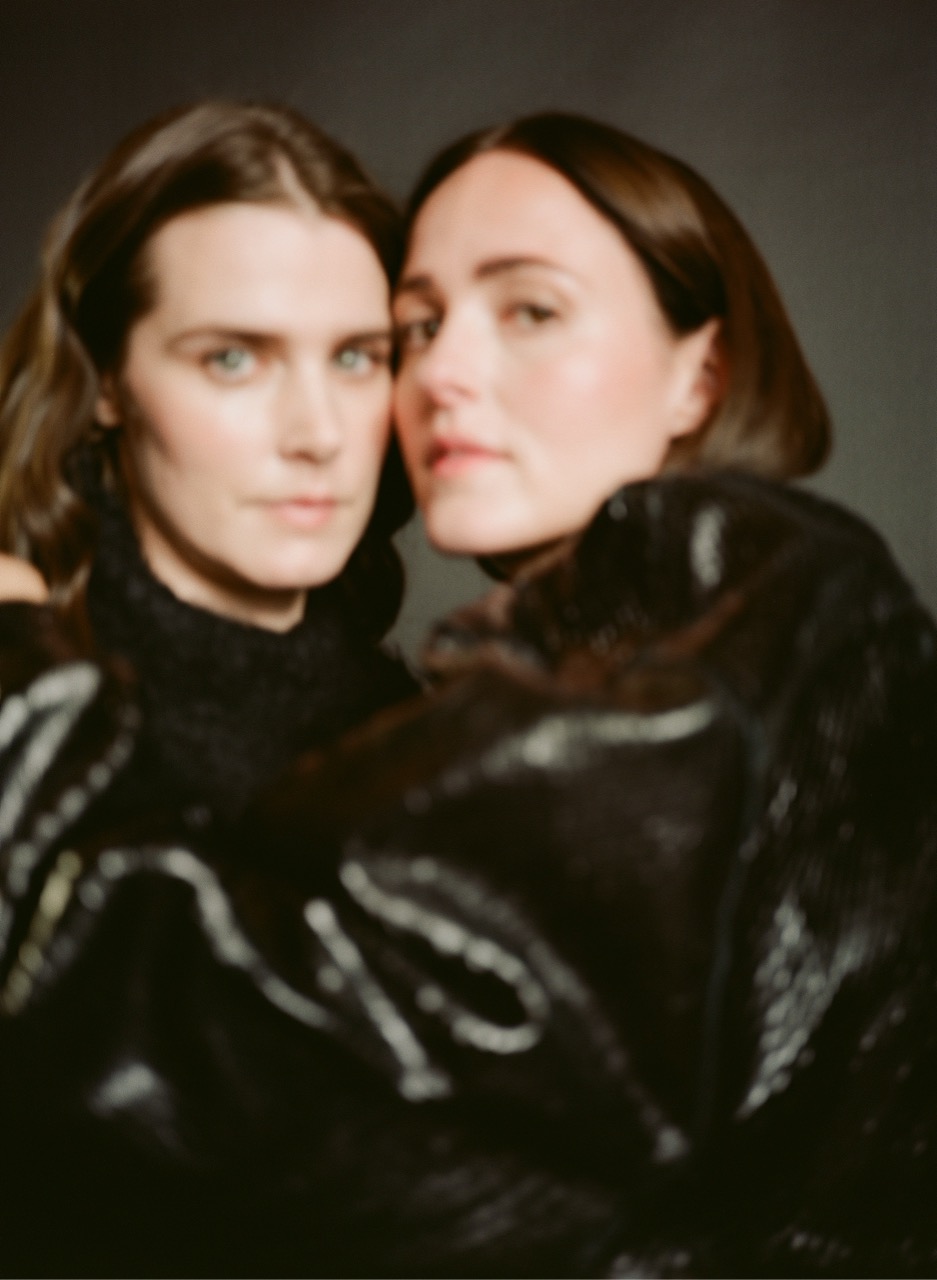
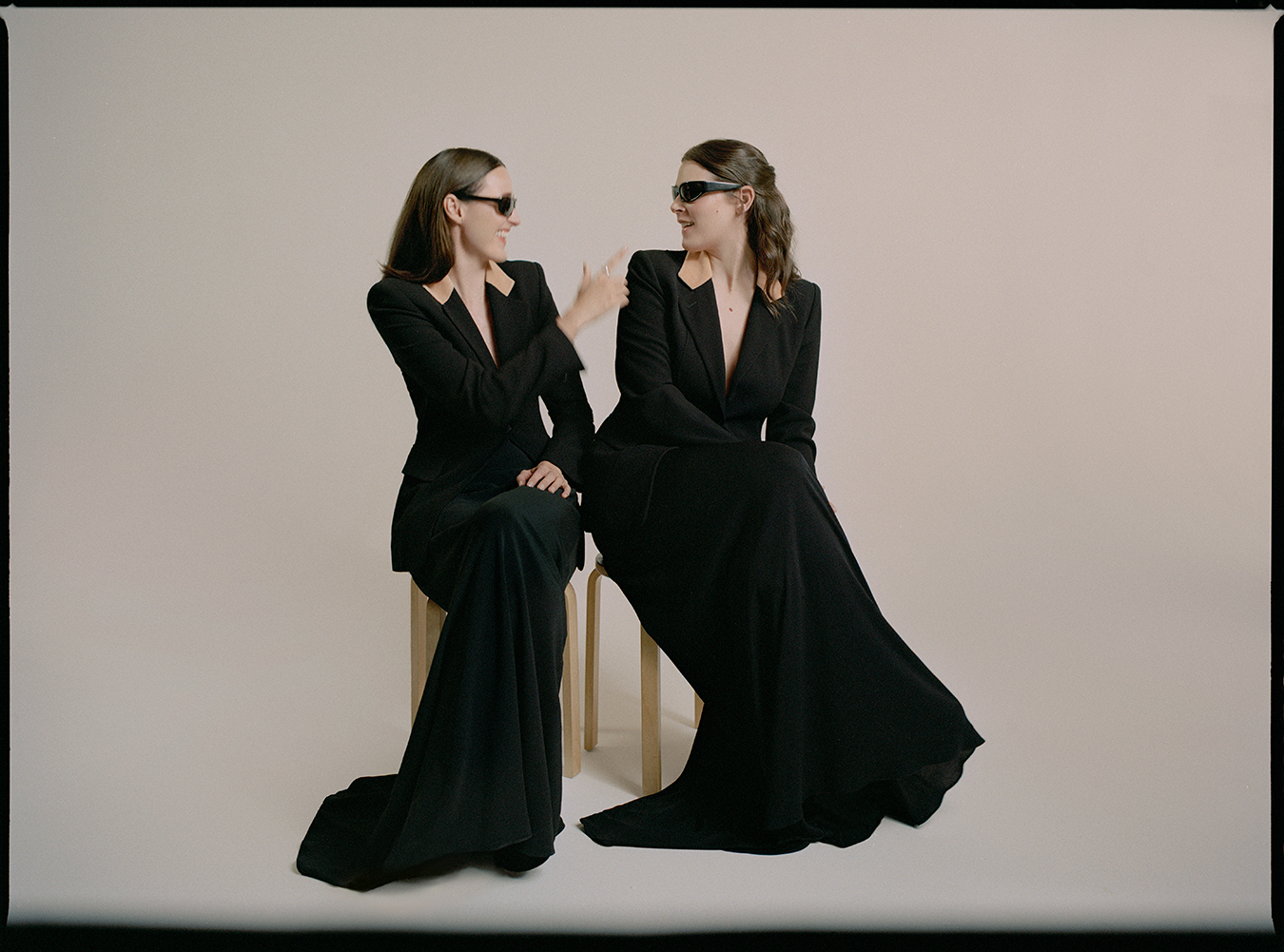
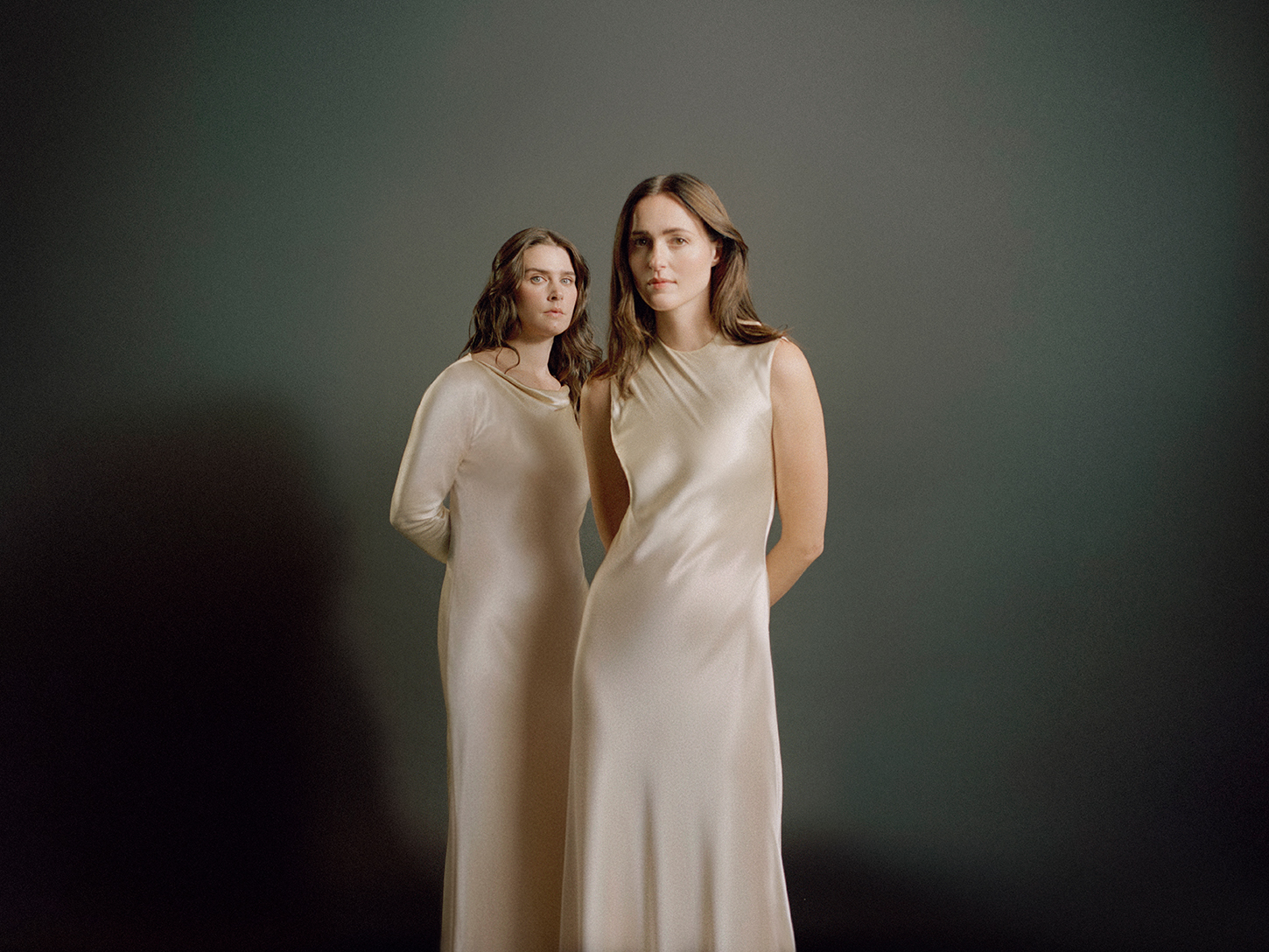
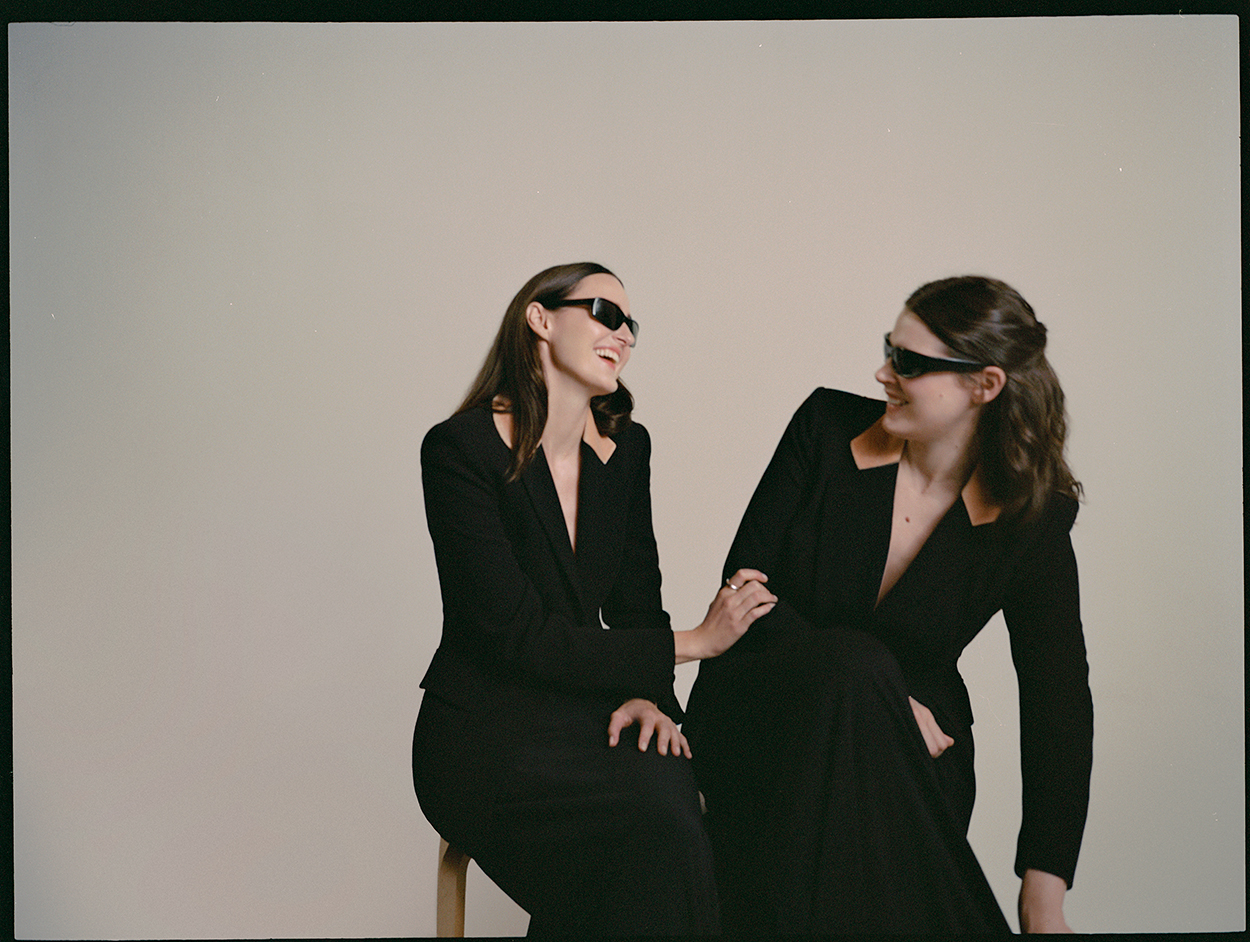
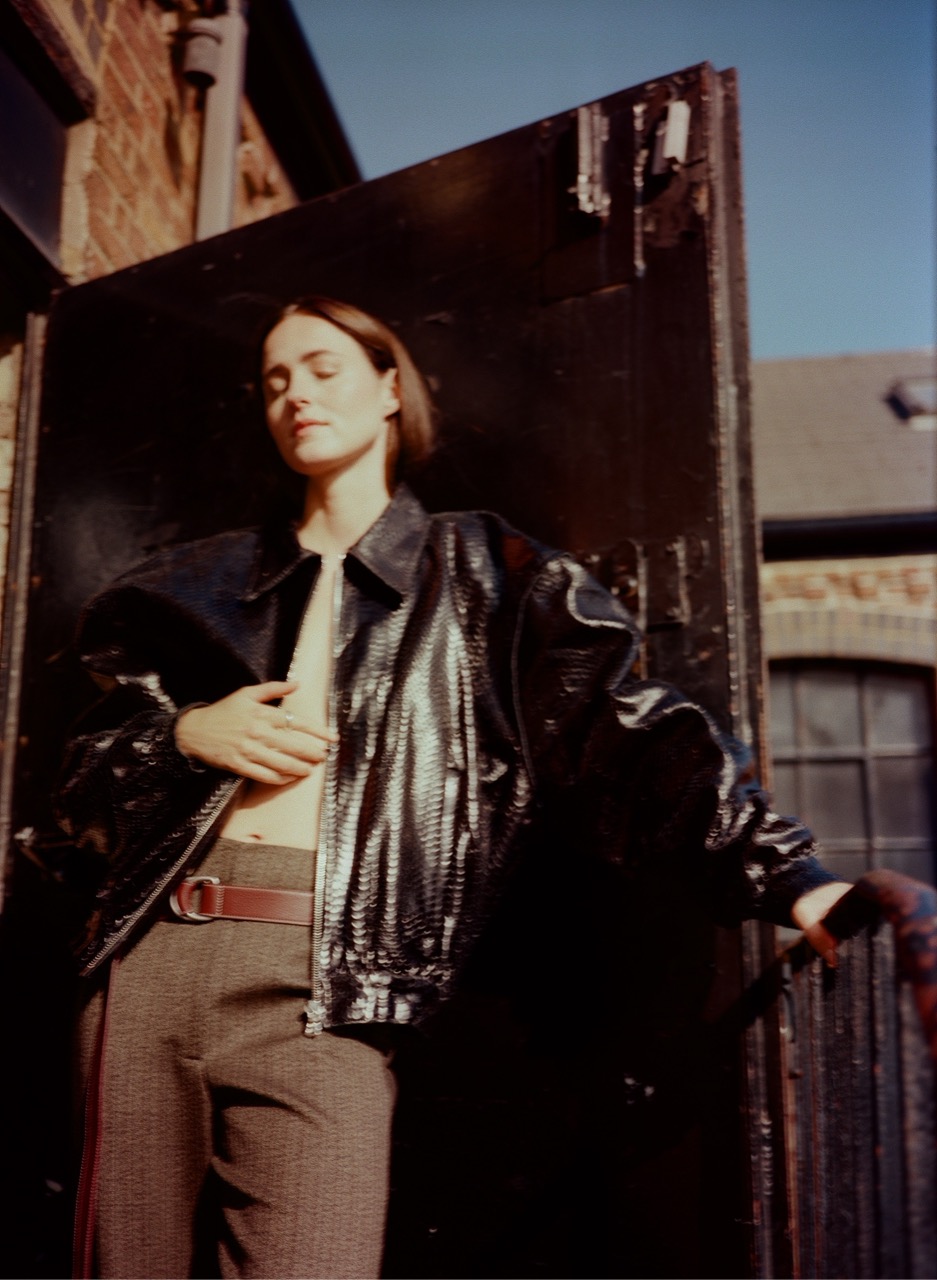
KG: And how was working with Stellan Skarsgård, having him as your on-screen father?
RR: It’s so funny, because we kind of established that dynamic on set. Joachim is really good at casting, so he sees the dynamic that he wants and that all steers into the film, and now we can’t get out of it.
IIL: He criticised my clothes yesterday. It’s the kind of thing a father would say.
KG: This is also a film about the relationship between European cinema and Hollywood. And it works on a lot of different levels, not only with Elle’s character [the American movie star] Rachel Kemp, but in the fact that this is a European film that is now going to have an Oscars campaign. How was working with Elle?
RR: You know, she was so smart with that character because it could have been this parody of an American actress coming in and trying to fit into a Norwegian film. But she was very, very smart. She built it with like a hint of that Hollywood kind of actress in the beginning, and then it got more and more complex. We only had one scene together, and I was sad because I really thought it was so cool working with her.
KG: Both of you have come to prominence in your thirties. Are you glad you weren’t famous at 18?
RR: I hated being a teenager and I didn’t like being in my twenties. I have always had a feeling that I’d be myself when I was 42. So I’m still too young for my age. After turning 30, I feel really good. It just gets better and better. I feel more confident about myself. I really think that I am more beautiful than in my twenties. People are obsessing so much about beauty and age, but I really see people getting more beautiful. I think I would have gone insane if I got this kind of attention when I was like 18, 19. It happened for a reason when I was after 30.
IIL: And you have other things in your life that are maybe more important. When I was younger everything felt so big.
RR: Yeah, and then you would chase that and wouldn’t maybe recognise it’s also filled with so many great things, but it’s also, on some levels, empty. And it’s so fluctuating. So it’s like big and great, and then there’s this nothing. You just have to have a distance to both the highs and the lows.
KG: And how are you feeling about the journey of this film—the Oscars’ buzz?
RR: I get goosebumps when you talk about it. A fiery feeling.
IIL: Dizzy. I’m scared I’m going to fall off my chair.
KG: It’s amazing that we’re in a time when a Norwegian film can be in the Oscar conversation.
IIL: Yes, it’s crazy that we can be in a movie together from our country that’s doing great that people like. It feels like a huge privilege.
RR: And we’re very proud and it’s really nice travelling, all of us together. And, of course, when you make something that’s so personal and we all became so connected to it, if someone else has a personal experience and really gets so moved by it, it feels great. It’s a really, really beautiful experience.
Sentimental Value is in UK cinemas from 26th December
Creative Director & Photographer: Fatima Khan
Executive Producer: Anna Pierce
Stylist: Karen Clarkson
Production Coordinator: Olivia Kenney
Videographer: Katya Ganfeld
Video Assistant: Luke Georgiades & Kitty Spicer
Lighting: Laurence Hills
Styling Assistant: Virginia Corelli
Hair Stylist (Renate Reinsve): Patrick Wilson
Make-Up Artist (Renate Reinsve): Valeria Ferreira
Hair Stylist (Inga Ibsdotter Lilleaas): Earl Simms
Make-Up Artist (Inga Ibsdotter Lilleaas) – Kelly Cornwell
Studio: Loft Studios
Retoucher: Alena Zolotnikova
Creative Assistants: Kitty Spicer & Dunia Daham
Look 1 (Renate): Vintage Hermès jacket, vintage Alexander McQueen black maxi skirt from Found and Vision.
Look 1 (Inga): Vintage Hermès jacket, Maximilian Davis black maxi skirt from Found and Vision.
Look 2 (Renate): Alberta Ferretti ivory satin gown.
Look 2 (Inga): Alberta Ferretti ivory satin long sleeve gown.
Look 3 (Renate): Roksanda black leather jacket and grey trousers, Ami Paris belt.
Look 3 (Inga): Acne Studios mohair jumper, Oude Waag brown dress.




